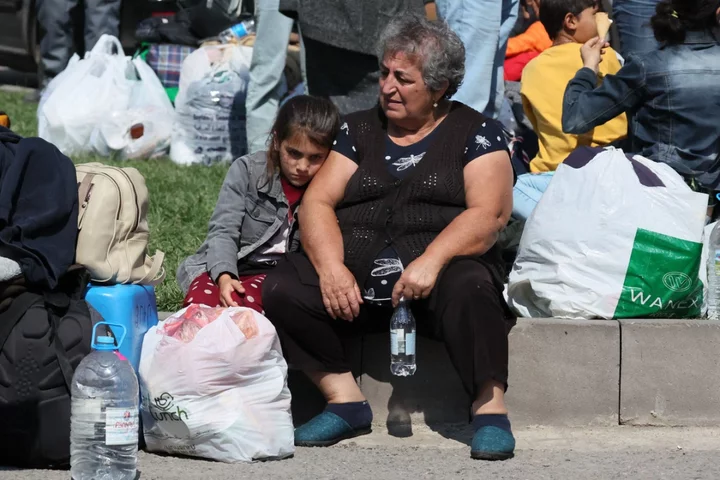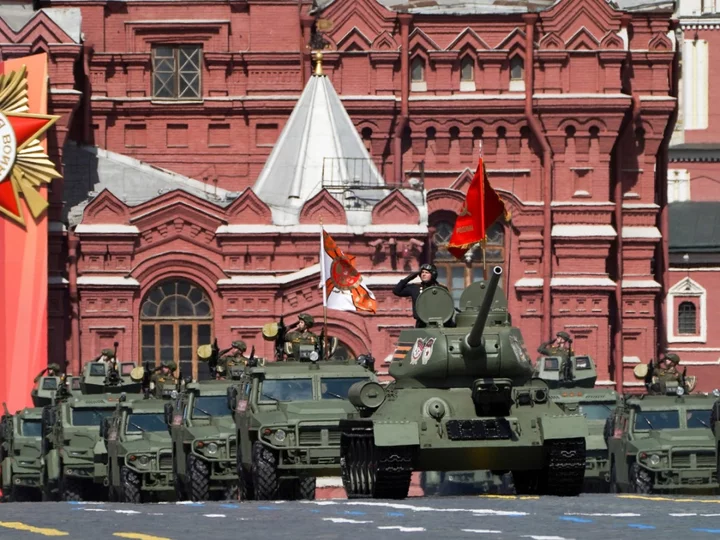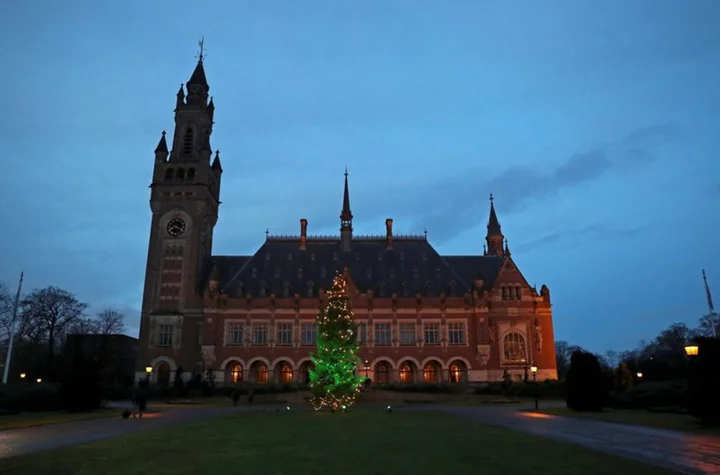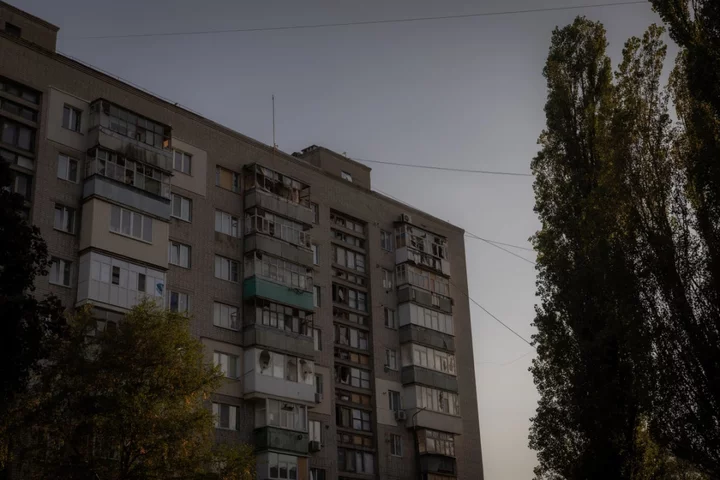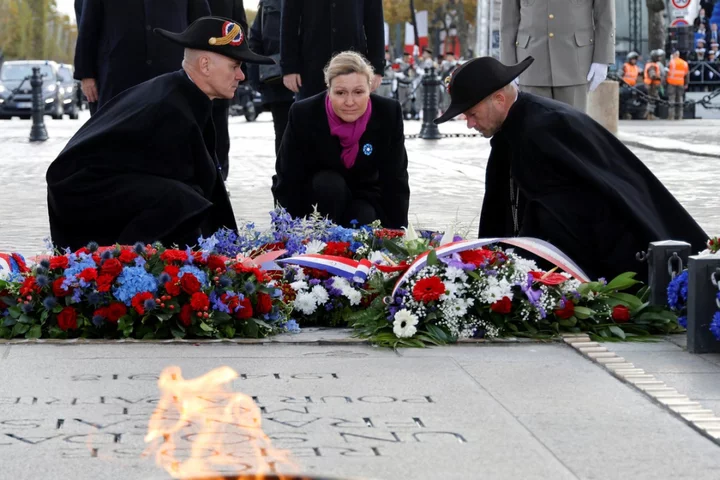Terrified families fleeing in fear of ethnic cleansing after the collapse of Nagorno-Karabakh are running out of water and fuel during the desperate two-day odyssey to neighbouring Armenia.
More than 90,000 Karabakh Armenians – around three-quarters of the total population – have now left their homes in the breakaway enclave, which is internationally recognised as being part of Azerbaijan.
The United Nations fears the stunning fall of the enclave could mean there will eventually be no Armenians left in Nagorno-Karabakh, prompting concerns of ethnic cleansing. It is the largest exodus of people in the South Caucasus since the collapse of the Soviet Union.
The breakaway region - also known by Armenians as Artsakh - had enjoyed de facto independence for three decades before Azerbaijan launched a lightning military operation earlier this month. It forced separatist forces to lay down their weapons and fto agree to formally dissolve the breakaway government.
Fearing reprisals, as Baku’s forces moved into the main cities and arrested Armenian officials, hungry and scared families packed what few belongings they could into cars and trucks and left their homes for good.
Valeri, 17, fled the village of Kichan, 70 km north of the Armenian border with his family and neighbours. In total, they squeezed 35 people into a Ford Transit and made the four-day journey to safety, sitting on top of each other and sleeping in shifts.
“We couldn’t take anything with us because the shelling was too intense as we escaped,” he told The Independent.
They had to hide in a large waste water pipe to escape artillery fire, he said. In the chaos, families were separated and the mobile coverage in the mountainous regions means they are still trying to reconnect.
His family has been forced to move six times since the early 1990s and, like so many Armenians, find themselves homeless again.
“I don’t think it’s possible to go back to Kichan, even if we could go back everything will be wrecked or stolen,” he said.
Others described a 40km hairpin road to Armenia at a near standstill, with some vehicles breaking down for a lack of fuel. In the lead-up to Azerbaijan’s operation, Baku had imposed a 10-month blockade on the enclave leading to chronic shortages of food and petrol supplies.
“All you can see is a sea of cars stretching to the horizon, people are cooking by the side of the road,” said Gev Iskajyan, 31, executive director of the Armenian National Committee of Artsakh, as he arrived exhausted in the Armenian capital Yerevan. He fled the region’s main city Stepanakert, or Khankendi as it is known in Azerbaijan, fearing he could be arrested if he stayed.
“Resources are so scarce there, people are running out of water and fuel on the road along the way out. If anything happens to children and the elderly, no one can get to them. Ambulances can’t move,” he told The Independent.
He said most families believed they would not ever be able to return home and that this was the end of Armenian presence.
“It weighs heavy. Nagorno-Karabakh isn’t just a place, it is a culture, it has its own dialect,” he said. “You look at the people in the back of trucks, they have to fit their entire life in a single box, they can’t bring everything, they can’t go back, it breaks your heart.
“It is centuries of history lost.”
Nagorno-Karabakh isn’t just a place, it is a culture, it has its own dialect
Gev Iskajyan, an Armenian advocate who fled to YerevanThe centuries-old conflict that has raged through the disputed enclave of Nagorno-Karabakh remains the longest-running in post-Soviet Eurasia.
The 4,400 square kilometre territory is officially part of Azerbaijan but after a bloody war following the dissolution of the USSR in the 1990s, the region’s Armenian-majority population enjoyed state-like autonomy and status.
That changed in 2020 when Azerbaijan, backed by Turkey, launched a military offensive and took back swathes of territory in a six-week conflict that killed thousands of soldiers and civilians. Russia, which supports Armenia, brokered a tense cessation of hostilities.
But that was broken earlier this month when Baku launched a 24-hour blitz which proved too much for Armenian separatist forces, who are outgunned and outnumbered. They agreed to lay down their weapons and dissolve the entire enclave.
Residents still left in Nagorno-Karabakh told The Independent that Azerbaijani forces and police entered the main city.
“People are intensively fleeing after the forces entered, and took over the governmental buildings,” said one man who asked not to be named over concerns for his safety.
Baku has also detained prominent Armenians as they attempted to flee, prompting fears more arrests may follow. Among them was Ruben Vardanyan, a billionaire investment banker, who served as the head of Karabakh’s separatist government between November 2022 and February this year.
On Friday, Russian state media reported that the Azerbaijani military had also detained former separatist commander Levon Mnatsakanyan as he also tried to escape. He led the army of the self-proclaimed Republic of Artsakh from 2015 to 2018.
The UN, meanwhile, said they were readying themselves for as many as 120,000 refugees to flood into Armenia, a third of them children.
“The major concern for us is that many of them have been separated from their family,” said Regina De Dominicis, regional director of the UN’s child agency.
“This is a situation where they’ve lived under nine months of blockade,” added Kavita Belani, UNHCR representative in Armenia. “When they come in, they’re full of anxiety, they’re scared, they’re frightened and they want answers.”
Read MoreMore than 70% of Nagorno-Karabakh's population flees as separatist government says it will dissolve
The fall of an enclave in Azerbaijan stuns the Armenian diaspora, extinguishing a dream
AP PHOTOS: Tens of thousands of Armenians flee in mass exodus from breakaway region of Azerbaijan
More than 70% of Nagorno-Karabakh's population flees as separatist government says it will dissolve
The fall of an enclave in Azerbaijan stuns the Armenian diaspora, extinguishing a dream
Why this week's mass exodus from embattled Nagorno-Karabakh reflects decades of animosity

